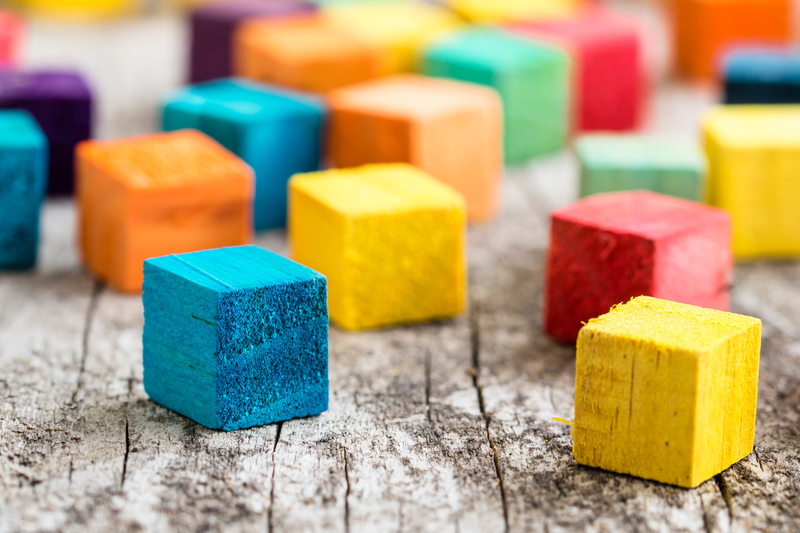Instilling Recycling Habits in Kids
Posted on 01/02/2025
In an era where environmental awareness is more critical than ever, teaching kids the importance of recycling is not just a trend but a necessity. Instilling good recycling habits early can lead to lifelong environmentally conscious behaviors. This article will provide you with in-depth guidelines, tips, and insights to help you start nurturing eco-friendly habits in the young minds around you.
Why Recycling Habits Should Start Young
Children are like sponges; they absorb whatever they see and learn. Introducing the concept of recycling early on can sensitize them to the importance of conservation. When kids understand the value of resources, they are more likely to adopt habits that minimize waste and promote sustainability.

Make Recycling a Fun Activity
Kids love activities that are engaging and fun. To make recycling interesting, you can gamify the process. Create a recycling chart and offer rewards for consistent recycling. Family contests on who can recycle the most can also spark enthusiasm. Using colorful bins and stickers can add to the fun and make the sorting process more visually appealing.
Educational Tools and Resources
Numerous educational tools can help explain the importance of recycling to children. Books, videos, and apps are available that break down complex concepts into easily digestible information. Schools often have recycling programs and environmental clubs that can support your efforts at home.
Leading by Example
Kids tend to mimic adults, so practice what you preach. Show them that you take recycling seriously by participating actively. When they see you recycling regularly, they will understand its importance and are more likely to follow suit.
Incorporate Recycling into Daily Routines
Make recycling feel like a natural part of their daily routine. Teach them to think before they throw something away. "Is this recyclable?" or "Can this be reused?" should be questions they consider. Establish a simple and consistent recycling process that kids can easily follow. For example, place labeled recycling bins in accessible locations around the house.
Teach the Impact of Recycling
Help your children understand the broader impact of recycling. Explain how recycling reduces waste, conserves resources, and minimizes pollution. Share stories or documentaries that highlight the positive effects of recycling and the negative impacts of not taking action. Connecting recycling to real-world consequences can make the concept more tangible and compelling for young minds.
Recycling Projects and Crafts
Another fun way to teach kids about recycling is through hands-on projects and crafts. Use recyclable materials like cardboard, bottles, and paper to create art and DIY projects. These activities can help illustrate the concept of transforming waste into something useful or beautiful.
Get Involved in Community Programs
Many communities have recycling programs and events that cater to families. Participating in these can expose your kids to a larger community of people who are committed to the same cause. This communal approach can reinforce the importance of recycling and make it a shared goal rather than just an individual effort.
Conclusion
Instilling recycling habits in kids is not an overnight task but a gradual process. By making recycling fun, educational, and a part of daily routines, you can nurture a sense of environmental responsibility in your children. Remember, what they learn today will shape their actions and decisions in the future, contributing to a healthier planet.
Pros and Cons
Pros:
- Creates awareness about environmental sustainability.
- Promotes responsibility and mindfulness in kids.
- Encourages family bonding through shared activities.
- Prepares the next generation to tackle environmental issues.
Cons:
- Initial investment of time and effort to establish routines.
- Possible resistance from kids initially.
- Requires continuous encouragement and reinforcement.

Tips
- Start with simple concepts and gradually introduce more complex ones.
- Use age-appropriate language and resources.
- Reward and praise your child's efforts to keep them motivated.
- Regularly involve children in recycling activities at home and within the community.
- Set realistic and achievable goals for recycling efforts.
Takeaways
- Early education on recycling is crucial for long-term sustainable habits.
- Making recycling fun and educational can significantly boost engagement.
- Parental involvement and leading by example set a strong foundation.
By embedding recycling habits into kids' lives early, we set a foundation for a more sustainable future. With consistent effort and creativity, teaching children to recycle can be a rewarding experience for your family and the planet.
Latest Posts
How to Separate Trash Efficiently
Ways to Reduce Your Environmental Impact






